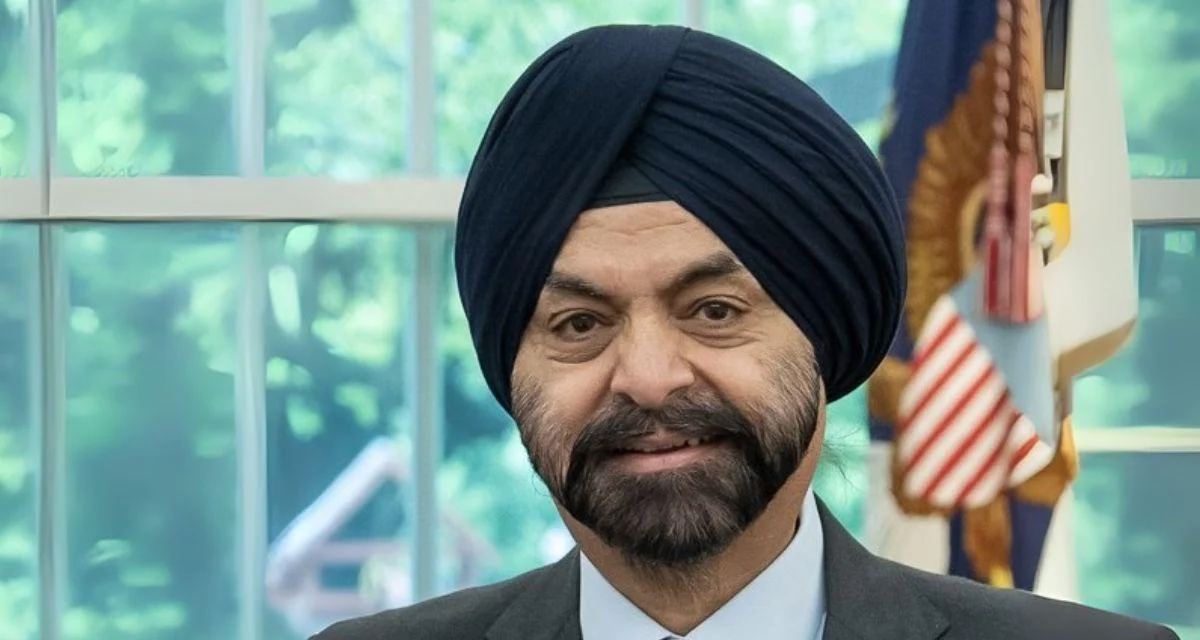The World Bank
Recent News About The World Bank
-
World Bank Group appoints Juan Diego Alonso as representative for Equatorial Guinea
The World Bank Group has named Juan Diego Alonso as its new Resident Representative for Equatorial Guinea.
-
World Bank supports South Asian countries’ efforts against severe regional air pollution
South Asia continues to struggle with some of the world's highest levels of air pollution, particularly in the Indo-Gangetic Plains and Himalayan Foothills.
-
Digital training helps Algerian women entrepreneurs expand businesses through World Bank-backed project
In Algiers, Amina, a local artisan, prepares shipments of her handmade soaps for delivery across Algeria and abroad.
-
World Bank Group advances goal of reaching 1.5 billion with affordable health services
Stronger health systems are seen as vital not only for saving lives but also for creating jobs and supporting economic growth.
-
World Bank review urges bold reforms amid Malawi's ongoing fiscal crisis
Malawi is facing a significant macro-fiscal crisis characterized by high fiscal deficits, unsustainable debt levels, and sluggish economic growth.
-
World Bank urges reforms for Philippine economic recovery amid slowed growth
The World Bank’s latest Philippines Economic Update reports that the Philippine economy experienced slower growth in 2025 due to domestic challenges, decreased investment, and weak global demand.
-
World Bank urges reforms as Malawi faces rising debt and fiscal challenges
Malawi is facing a challenging economic situation, with persistent fiscal imbalances, high inflation, and growing debt limiting both development and social progress.
-
World Bank expands entrepreneurship support for women with disabilities in DRC
Inclusive economic development in the Democratic Republic of Congo (DRC) is receiving support through the $300 million Empowering Women Entrepreneurs and Upgrading MSMEs for Economic Transformation and Jobs in DRC Project, known as the TRANSFORME...
-
World Bank reports moderate economic recovery in Myanmar amid persistent challenges
Myanmar’s economy is showing moderate signs of recovery, according to the latest World Bank Myanmar Economic Monitor.
-
Universal Health Coverage progress stalls as millions remain without essential services
Global efforts to achieve Universal Health Coverage (UHC) by 2030 are falling behind, according to the latest Global Monitoring Report released on December 5, 2025.
-
World Bank report outlines strategies for economic growth in Brazil's Northeast
Brazil’s Northeast region could play a significant role in the country’s economic development, according to a new World Bank report titled “Routes to the Northeast: Productivity, Jobs, and Inclusion.” The report highlights that the region, which...
-
World Bank reports steady economic growth in Algeria with focus on diversification
Algeria’s economy saw growth of 4.1 percent in the first half of 2025, with GDP for the year expected to reach 3.8 percent, according to the World Bank’s Fall 2025 Algeria Economic Update.
-
Jamaica receives rapid payouts after Hurricane Melissa amid focus on resilience
Hurricane Melissa caused significant damage in Jamaica, destroying homes, schools, roads, and hospitals, and displacing many families.
-
Moldova expands digital public services with World Bank support
Since 2018, Moldova has been working to digitize its public services with support from the World Bank.
-
World Bank Group appoints Gael Raballand as new Country Manager for Tajikistan
Gael Raballand has been appointed as the new Country Manager for Tajikistan by the World Bank Group, effective December 1, 2025.
-
World Bank urges policy changes for growth in Brazil's Northeast
The World Bank has released a new report outlining strategies to promote economic and social development in Brazil's Northeast region.
-
World Bank focuses on linking operations directly with global job creation
Jobs are seen as a key result of successful development, according to the World Bank Group.
-
Fifteen countries launch national plans advancing World Bank universal healthcare goal
Countries are making progress toward the World Bank Group’s goal of providing affordable, quality health services to 1.5 billion people by 2030.
-
Investments in Armenian wetlands boost rural economies through ecotourism and conservation
As the sun rises over Armenia’s Ararat Valley, ornithologist Anush Khachatryan of BirdLinks Armenia observes waterbirds at the Armash wetland.
-
Gavi and World Bank Group sign agreement for joint investment in healthcare systems
Gavi, the Vaccine Alliance, and the World Bank Group have signed a new Memorandum of Understanding (MoU) to enhance their cooperation in strengthening immunization programs, primary healthcare systems, and regional vaccine manufacturing in Africa.





